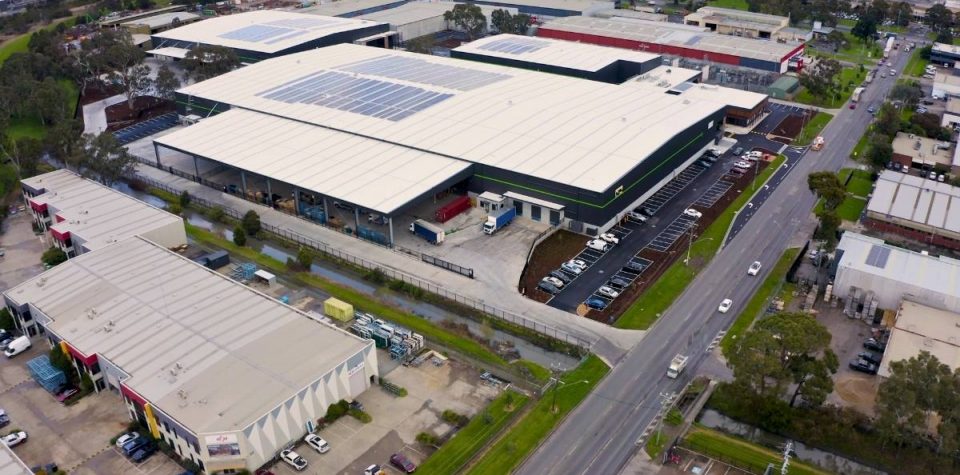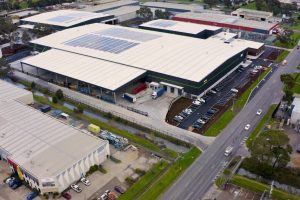Table of Contents:
- From Tassie to Rushcutter’s Bay.
- The Heartbeat of Hospitality
- The Future of Hotel Logistics in Australia.
- Handing Over the Keys to Success
How logistics software helps to maintain the quality and reputation of hotels across Australia.
Australia's vibrant hotel industry is a cornerstone of its tourism sector. Each year, millions of visitors and countless locals pass through the lobbies, hallways and rooms of the country’s hotels. But beyond the luxurious rooms and impeccable service lies a complex web of logistics that ensures every guest's experience is seamless.
From sourcing fresh ingredients to managing housekeeping staff, hotel logistics play a crucial role in the success of any Australian hotel. In this article, we are going to check in for a tour of hotel logistics. We will dive into the pool of knowledge Australian hoteliers have amassed since the first days of the country’s settlement. And we’ll dine on a suite of other hotel puns that we haven’t thought of yet!
So…if you’ve got your electronic door key we will take the lift to the penthouse and begin.
From Tassie to Rushcutter’s Bay.
Australia has a long history of hotel hospitality. From the earliest days of colonial settlement, hotels have been integral to the nation's development, serving as hubs for social interaction, business, and accommodation for travellers. Often, pubs were among the first structures erected in newly settled areas. They rapidly became foundational to burgeoning towns which sprang up around them. These establishments were also multifunctional, often operating as inns, post offices, eateries, court houses and general stores.
The oldest hotel in Australia
The Bush Inn, in the Tasmanian town of New Norfolk, is said to be the oldest continuously operating hotel in Australia. Opened in 1815, the hotel was named after DW Bush, the clerk of Tasmania’s first chaplain, the Reverend Robert “Bobby” Knopwood. As well as offering food, drink and accommodation, the Bush Inn also doubled as a chapel, with a baptismal font for christening babies. Presumably, the people who gathered for christenings could also “wet the baby's head” at the bar during the ceremony. In 1888, the first telephone call in the British Commonwealth was made from The Bush Inn, setting the scene for the modern communications tools that form the backbone of modern hotel logistics from Rushcutter’s Bay to Cottesloe Beach.
The Heartbeat of Hospitality
Logistics, in the context of hotel management, encompasses the efficient planning, coordination, and execution of all activities involved in delivering a memorable guest experience.
This includes everything from:
- Supply chain management. Procuring food, beverages, linens, toiletries, and other essential supplies.
- Inventory control. Maintaining optimal stock levels to avoid shortages or waste.
- Workforce management. Scheduling staff effectively to ensure smooth operations.
- Technology integration. Utilising software and tools to streamline processes and improve communication.
Conquering the challenges
Operating a hotel in Australia comes with its own set of logistical hurdles. Seasonal fluctuations in demand, diverse guest preferences, and complex supply chains can all pose significant challenges.
For instance, a luxury resort at Uluru may face difficulties in sourcing specific ingredients, while a bustling city hotel might grapple with managing peak-season crowds efficiently.
To help overcome these hurdles, dedicated logistics software platforms bring sophisticated management systems to hotel operators. Inventory management systems can track everything from room amenities to minibar items. This data-driven approach ensures that hotels always have what their guests need, minimising waste and maximising efficiency. Similarly, workforce management systems utilise innovative scheduling software and cross-training programs to ensure staff are always available to meet guests' needs, regardless of occupancy levels.
Tech-Powered Efficiency
Australian businesses adapt easily to new technology. It’s part of the do-it-yourself mentality that has been etched by necessity into our DNA. These days, technology plays a transformative role in hotel logistics. Australian hotels are increasingly adopting software solutions to control and streamline the day-to-day tasks of hotel management.
- Reservations management. Software tools can be used to streamline booking processes and optimise room allocation.
- Procurement and inventory control. Logistics software effortlessly generates automated purchase orders and tracks stock levels in real time.
- Guest communication. Guests love the personal touch. By leveraging data collected and collated by logistics software systems, hotels can provide personalised service through mobile apps, chatbots and automated email workflows.
Sustainable Solutions
Sustainability is becoming an increasingly important aspect of hotel logistics in Australia. Many hotels are now enacting eco-friendly practices such as sourcing local and organic produce to reduce their carbon footprint and support local farmers.
Across Australia, hotels are utilising energy-efficient appliances to minimise resource consumption and lower operational costs. They are also implementing waste reduction and recycling programs to divert waste from landfills and promote environmental responsibility.
The Future of Hotel Logistics in Australia.
The future of hotel logistics in Australia is brimming with exciting possibilities, as technology expands into facets of hotel management that previously took up large amounts of valuable staff time and effort.
- The rise of automation. Robots and AI-powered systems are poised to handle tasks like housekeeping and guest services, freeing up human staff to focus on higher-level interactions. Many hotels now have robot butlers to deliver room service and while this may still seem like a novelty, it points the way towards future innovations in robotic technology in the hotel industry.
- Hyper-personalisation. Software platforms collect data that can be used to tailor hotel logistics to individual guest preferences, creating a truly bespoke experience during check-in, check-out and throughout a guest’s stay.
- Circular economy principles. Digital systems are being used to monitor and operate closed-loop systems where waste from one process becomes the input for another, minimising the resource consumption and environmental impact of hotels.
Handing Over the Keys to Success
Over the years, the Australian hotel industry has evolved, adapting to changes in technology, customer expectations, and economic conditions. Today, it stands as a vibrant and diverse sector in Australia's economy, offering a wide range of experiences to both domestic and international visitors. This evolution has brought forward new challenges and opportunities, particularly in the realm of logistics and management, where efficiency and innovation are key to success.
Efficient logistics are the backbone of any successful hotel operation in Australia. By embracing innovative solutions, prioritising sustainability, and adapting to evolving trends, Australian hotels can continue to deliver exceptional guest experiences and thrive in the competitive tourism landscape.
A smooth-running hotel is a symphony of coordinated efforts behind the scenes. So the next time you check into a beautiful Australian hotel — whether it's a small boutique hotel in Tassie or a luxury penthouse overlooking Circular Quay — take a moment to appreciate the complex logistics that are working to make your stay comfortable and memorable.



